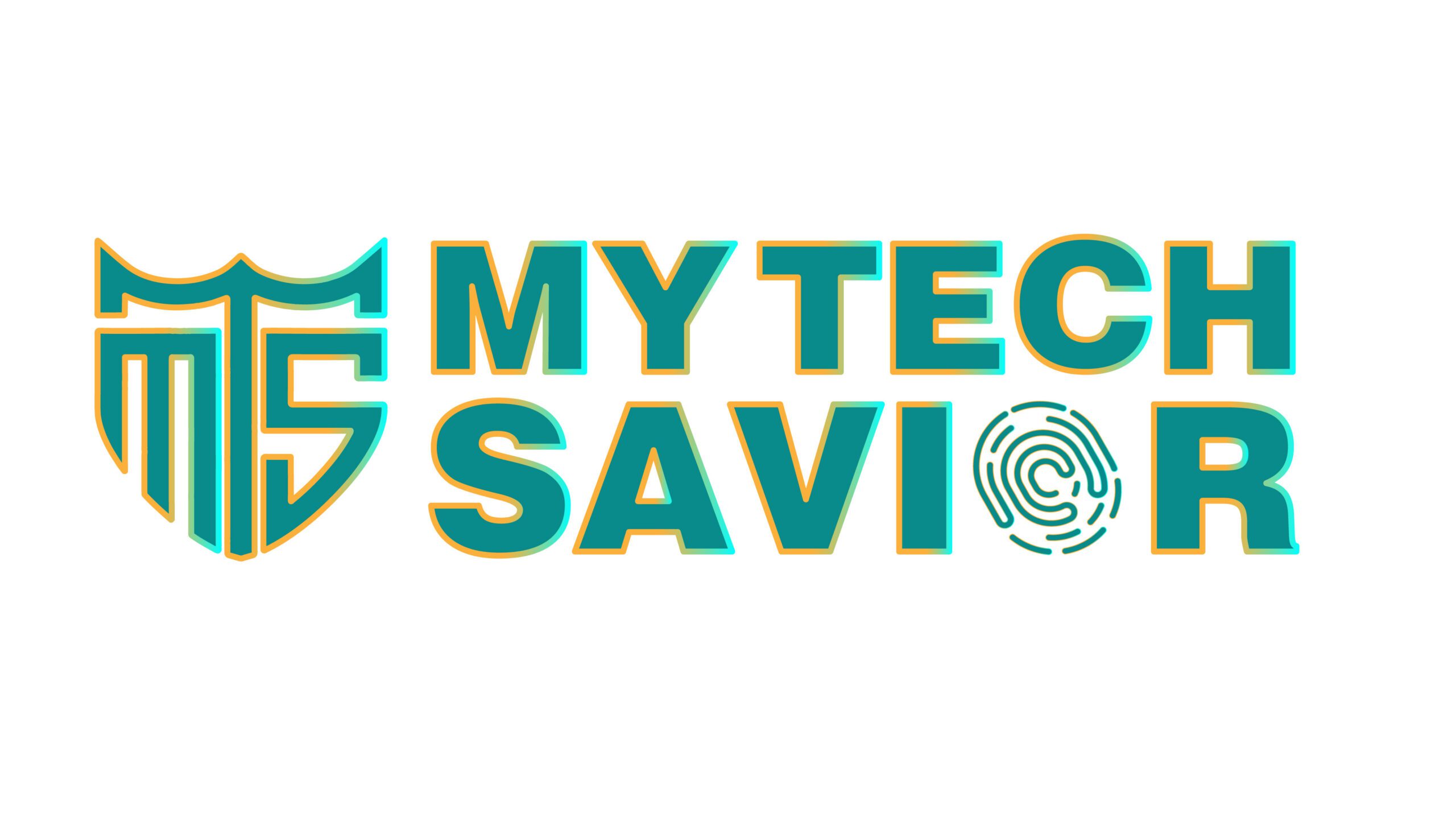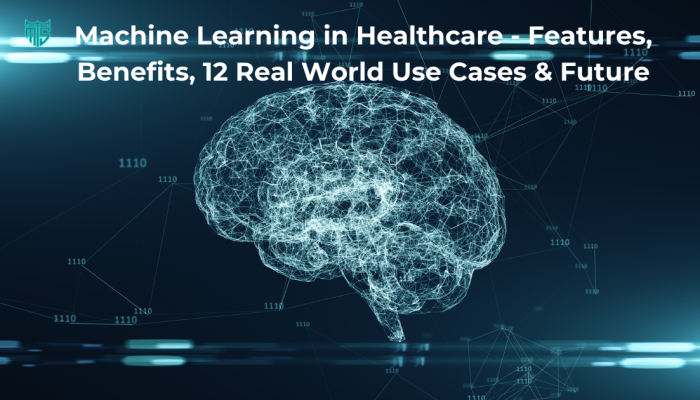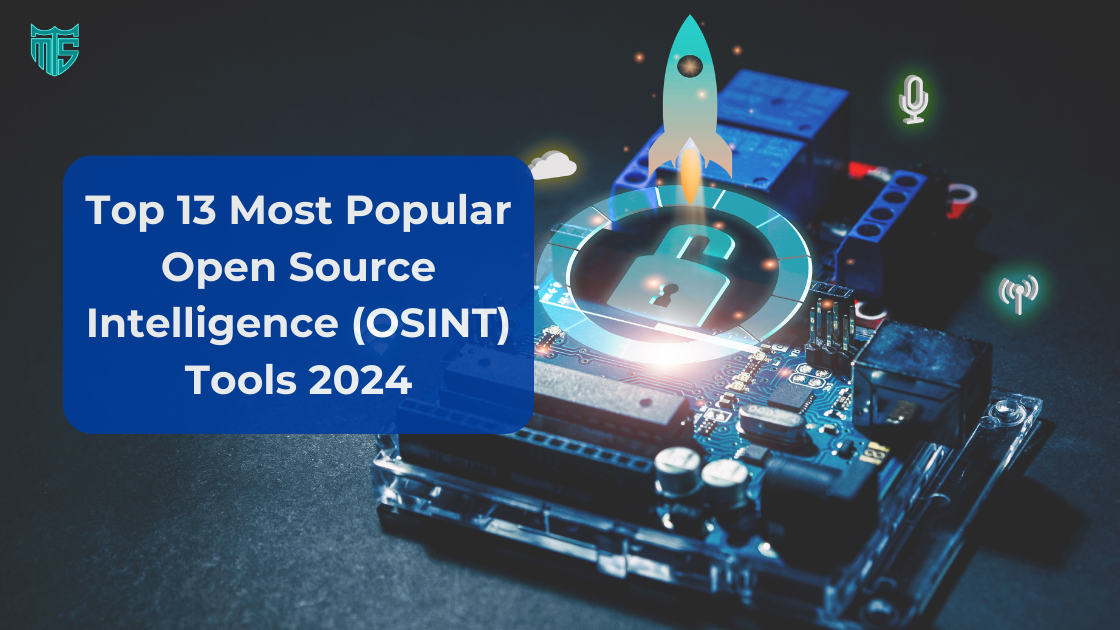Introduction to Machine Learning in Healthcare
Machine learning is transforming healthcare by enabling computers to find hidden insights in massive amounts of data. This technology holds great promise for improving patient outcomes, reducing costs, and advancing medical research.
In healthcare, machine learning analyzes large datasets to uncover patterns that can guide better decision-making. For example, an algorithm can scan medical images to identify early signs of cancer or other diseases. Machine learning models can also help predict the risk of hospital readmission for individual patients and suggest personalized treatment plans.
The global Artificial Intelligence in the healthcare market is projected to grow from $13.82 billion in 2022 to $164.10 billion by 2029, at a CAGR of 42.4% (Fortune Business Insights).
By leveraging the power of data and algorithms, machine learning is making strides in various healthcare applications, including:
- Diagnosis – Identifying diseases and medical conditions more accurately and quickly
- Drug discovery – Discovering new medicines and repurposing existing drugs faster
- Precision medicine – Customizing treatment to an individual’s genes, environment, and lifestyle
- Risk assessment – Predicting a patient’s risk of disease progression or readmission
The adoption of machine learning in healthcare has been accelerated by the vast amount of data generated by electronic health records, medical devices, and genomic sequencing. However, realizing the full potential of machine learning in healthcare also faces challenges like data quality issues, lack of transparency, and ethical concerns around privacy.
This article will provide an in-depth look at how machine learning is transforming healthcare. The features and benefits of machine learning will be explored through real-world examples and use cases. Additionally, the article will discuss the future outlook and the key considerations around implementing machine learning in healthcare responsibly.
Features of Machine Learning in Healthcare
Machine learning is transforming healthcare by enabling the analysis of massive amounts of data to uncover patterns and insights that can improve patient outcomes. Some of the key features that make machine learning so valuable in healthcare include:
Data Mining
Machine learning algorithms excel at finding patterns and relationships within large, complex datasets like electronic health records, medical images, and genomic data. By mining this data, machine learning can identify risk factors for diseases, discern optimal treatment plans, and enable early diagnosis of conditions.
Pattern Recognition
A core capability of machine learning is automatically recognizing patterns that may not be apparent to humans. In medical imaging, machine learning can identify tumors, detect retinal disease, and classify skin lesions. For patient monitoring, it can detect early signs of patient deterioration or adverse events.
Predictive Modeling
Machine learning models can make highly accurate predictions about future health outcomes for patients. These models can predict the risk of hospital readmission, forecast sepsis onset, estimate patient life expectancy, and more. This enables more proactive and preventive care.
Personalized Medicine
By analyzing patient data and genetics, machine learning can tailor prevention and treatment plans to each individual’s unique characteristics. This personalized approach to medicine can improve outcomes while reducing waste and costs.
In summary, machine learning is transforming healthcare by enabling the rapid analysis of massive amounts of data to uncover personalized insights that can improve diagnoses, predict outcomes, and enhance patient care overall.
Benefits of Machine Learning in Healthcare
Machine learning has the potential to revolutionize healthcare by enhancing diagnosis accuracy and speed. By analyzing large datasets, machine learning algorithms can uncover patterns that may be difficult or impossible for humans to detect. This can lead to earlier and more precise diagnoses, getting patients the treatment they need sooner.
For example, machine learning has been used to analyze medical images and detect tumors, diseases, and other abnormalities better than clinicians alone. Algorithms can be trained on thousands of sample images to identify visual patterns associated with certain conditions. As a result, diseases like cancer can be caught at earlier, more treatable stages.
Machine learning also holds great promise for reducing medical errors and improving patient care. Algorithms can analyze data from patient records to identify risk factors for complications or readmissions. They can then prompt doctors to take preventative steps to avoid these adverse events.
By optimizing treatment plans and resource allocation, machine learning can make healthcare delivery more efficient. It can help health systems cut costs while still improving health outcomes. For instance, algorithms can analyze which treatments are effective given a patient’s profile and reduce unnecessary tests or procedures.
Some studies estimate that machine learning could result in $300 billion in annual savings for the U.S. healthcare economy by enhancing predictive analytics and other capabilities. As machine learning is further integrated into clinical settings, it is likely to yield additional benefits we have yet to envision.
Real-world Use Cases of Machine Learning in Healthcare
Machine learning is already being applied in healthcare in a variety of innovative ways. Here are 12 real-world examples highlighting the impact of machine learning on patient outcomes and healthcare processes:
1. Disease Prediction and Diagnosis
Machine learning algorithms can analyze patient data like medical images, lab results, and clinical notes to identify disease indicators and predict future diagnoses. For example, deep learning models can detect tumors and lesions in scans with greater accuracy than human radiologists.
2. Personalized Treatment Plans
Based on a patient’s specific health data, ML models can forecast how they may respond to different treatment options. This allows doctors to create tailored treatment plans with the highest probability of success.
3. Drug Discovery and Development
Pharmaceutical companies are using ML to analyze molecular data and predict biological interactions. This speeds up the identification of novel drug candidates and targets.
4. Patient Monitoring and Risk Assessment
Continuous patient monitoring with wearables and sensors allows ML algorithms to track health metrics and detect early warning signs of complications or deterioration.
5. Medical Imaging Analysis
Deep learning is advancing medical imaging by improving scan analysis, supporting diagnostic procedures, and automatically detecting abnormalities.
6. Precision Medicine
ML tools can analyze population data to identify health patterns and trends. This enables more targeted therapies based on the patient’s genetics, lifestyle, and environment.
7. Robot-Assisted Surgery
ML is improving robotic surgery by enhancing navigation, control, and haptic feedback. This leads to greater precision, flexibility, and consistency.
8. Virtual Nursing Assistants
AI-powered chatbots and virtual assistants are handling patient queries, booking appointments, and supporting care teams to improve efficiency.
9. Clinical Trial Management
ML can optimize clinical trials by identifying eligible patients, monitoring results, and ensuring protocol adherence.
10. Fraud Detection
Advanced anomaly detection algorithms can identify fraudulent claims, transactions, and behavior to reduce healthcare costs.
11. Workflow Optimization
ML models can analyze operational data to improve scheduling, resource allocation, and process flows in healthcare systems.
12. Public Health Monitoring
Population health trends and infectious disease outbreaks can be identified early by analyzing news reports, search trends, and health data with ML.
While promising, effectively implementing machine learning in healthcare presents challenges like data quality issues, bias in algorithms, and adoption barriers. Careful governance and ethics-based design is required to realize the full potential of ML in this field.
The Future of Machine Learning in Healthcare
Machine learning has enormous potential to transform healthcare in the coming years. As algorithms become more sophisticated and larger datasets become available, machine learning systems will likely achieve capabilities beyond what we can currently imagine.
Advancements in Diagnostics and Treatment
One major area of advancement will be in using machine learning for earlier, faster, and more accurate diagnostics. Systems could analyze a wide range of patient data – including medical images, lab tests, and even DNA sequencing – to detect diseases at the earliest stages. This could enable earlier intervention, leading to improved outcomes. Machine learning also holds promise for discovering new treatments and optimizing treatment plans for individual patients. As more data is aggregated, algorithms may find patterns that reveal new drug candidates or allow customization of treatments.
Expansion Across Healthcare Tasks
Machine learning has shown initial success in areas like radiology, cardiology, and oncology. As research continues, these techniques could expand to many other specialties. Algorithms may assist with robotic surgery, analyze behavior patterns to detect mental health conditions, or parse doctor’s notes to extract relevant information. Machine learning could also enhance hospital logistics, optimizing patient flows, staff scheduling, and resource allocation. The potential reach across healthcare tasks is immense.
Integration with Other Technologies
Machine learning in healthcare will likely integrate with other emerging technologies like the Internet of Things (IoT) and blockchain. IoT devices can collect real-time patient data to feed into machine learning models. And blockchain can enable secure sharing of data while maintaining patient privacy. Combining these technologies could enable machine learning to impact patient care at the population level. However, ethical concerns regarding data privacy will need to be addressed thoughtfully.
Focus on Preventative Care
Currently, machine learning in healthcare is primarily diagnostic and reactive – detecting diseases after onset. But in the future, a greater focus may shift toward preventative care. Algorithms could potentially analyze a broad range of lifestyle, genetic, and environmental factors to predict an individual’s disease risks. Patients could then take proactive measures, guided by machine learning systems, to reduce those risks and maintain health. This shift could greatly lower healthcare costs and improve quality of life.
Ethical Considerations
While machine learning in healthcare holds much promise, ethical challenges remain. As systems take on more responsibilities, questions around accountability and transparency become crucial. There must be thoughtful consideration of how to reduce algorithmic bias, ensure data privacy, and communicate machine learning capabilities and limitations to patients and providers. Developing clear regulations and guidelines will be critical for the safe, effective, and ethical integration of machine learning into healthcare.
Conclusion and Call-to-Action
As we reach the end of this blog post on machine learning in healthcare, it’s clear there is tremendous potential for this technology to transform patient care. From enhancing diagnostic accuracy to optimizing treatment plans, machine learning has already demonstrated immense value across a wide range of real-world healthcare applications.
However, realizing the full benefits of machine learning in medicine will require continued research and development. There are still challenges to overcome, particularly around implementing complex algorithms securely within clinical workflows. Issues of privacy and ethics also need to be addressed as machine learning becomes further integrated into healthcare systems.
But the possibilities seem endless. Machine learning is poised to enable more preventive and predictive care, powering everything from early disease detection to precision medicine treatments tailored to each patient’s genetics. As computing power grows exponentially, machine learning models will continue to expand in scope and sophistication.
The key will be ensuring these systems are designed thoughtfully and inclusively, with patient wellbeing at the core. If healthcare organizations and technology companies make patient-centered values a priority, machine learning can transform medicine for the better.
For those interested in learning more about this rapidly evolving field, here are some recommendations on where to explore next:
- Follow leading research journals like Nature Medicine and The Lancet Digital Health to stay updated on the latest machine learning studies and applications.
- Check out educational resources like Coursera courses and EdX programs focused on AI in healthcare.
- Attend industry conferences such as the Machine Learning for Healthcare Conference to connect with experts and innovators.
- Follow thought leaders in this space through blogs, social media channels, and podcasts.
The potential for machine learning to improve patient outcomes is simply too vast to ignore. By continuing to educate ourselves and advocate for responsible development, we can ensure this technology lives up to its world-changing promise. The future of healthcare could be radically different – in the best way possible – thanks to machine learning.






